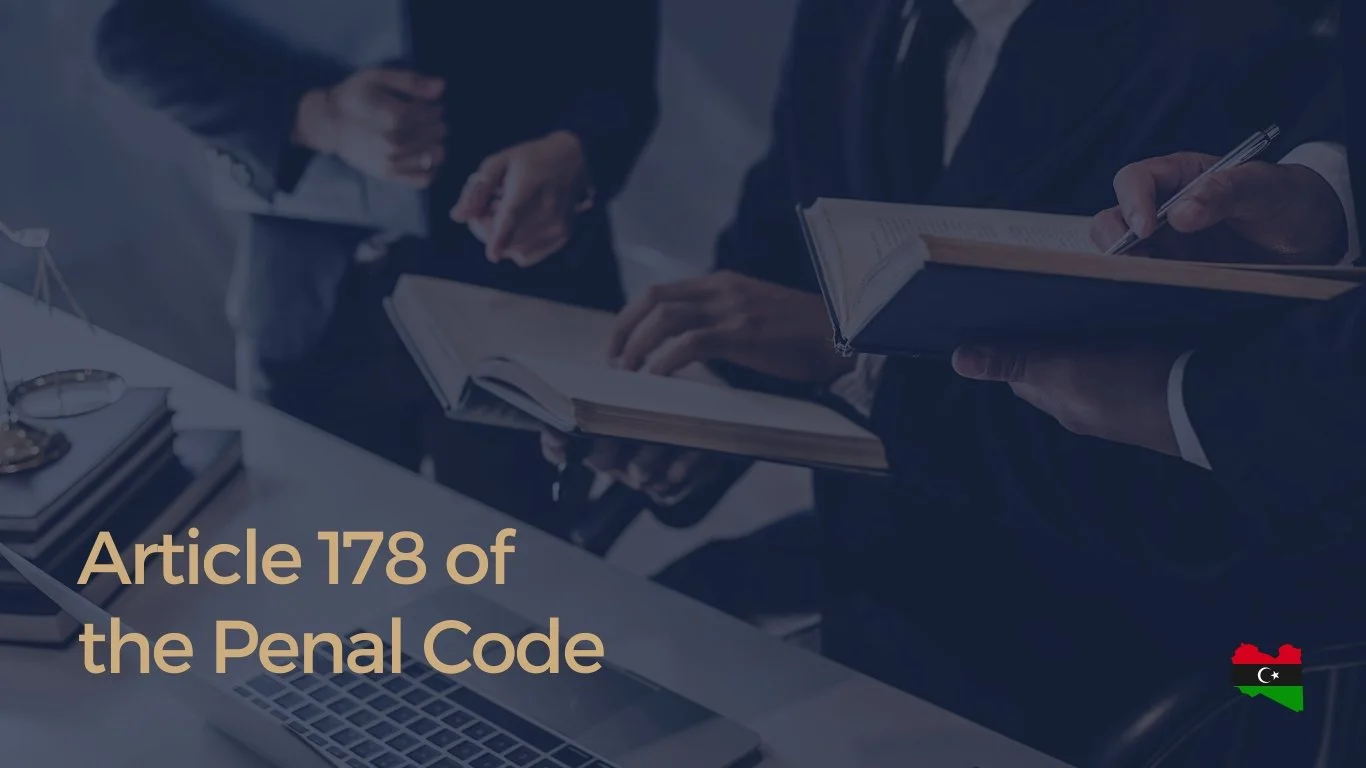Article 178 of the Penal Code : Gaddafi-era repressive legal arsenal continues
Libyan authorities continue to use repressive articles from the Gaddafi era that were intended to confiscate the right to expression, association, and communication with UN human rights protection mechanisms. Article 178 of the Penal Code is among these repressive texts, stipulating:
" Activity of Libyans Abroad against the Interests of the State: Any Libyan abroad who disseminates or reports rumors or information which are false, exaggerated, or provoke concern about the internal condition of the Libyan Arab Republic in such a manner as to diminish its reputation or credit abroad, or who in any way acts in such a manner as to injure the national interests shall be punished with a penalty of life imprisonment." "This text is in violation of the principles of freedom of expression and criminal legality. It goes against the Constitutional Declaration of 2011, the International Covenant on Civil and Political Rights, the African Declaration on Human and Peoples' Rights, and Article 6 of the Transitional Justice Law of 2013. According to this law, any repressive laws should be repealed, and the principle of "no crime and no punishment without a text" should be upheld."
The text of Article 178 poses issues in its wording and content, making it out of date and out of context with Libya’s logical development after the February 2011 revolution.
The text violates Libya's international obligations and freedom of speech and expression guarantees
Article 178 violates Articles 7 and 31 of the Constitutional Declaration. Article 7 establishes Libya’s commitment to international covenants on the protection of human rights, while Article 31 establishes the principle of criminal legitimacy, which is undermined by the text of Article 178 of the Penal Code. Article 6[1] of Law 29 of 2013 on Transitional Justice further emphasizes the invalidity and Illegitimacy of unjust legislation.
In its General Comment No. 34 on the interpretation of Article 19 of the International Covenant on Civil and Political Rights guaranteeing freedom of expression, the United Nations Human Rights Committee interpreted paragraph 25 of the Comment: “A norm, to be characterized as a ‘law,’ must be formulated with sufficient precision to enable an individual to regulate his or her conduct accordingly, and it must be made accessible to the public. A law may not confer unfettered discretion for the restriction of freedom of expression on those charged with its execution. Laws must provide sufficient guidance to those charged with their execution to enable them to ascertain what sorts of expression are properly restricted and what sorts are not.”
Article 178 blatantly violates the right to freedom of opinion and the right to freedom of expression, and further violates the right to freedom of the press and publication. Despite that, these rights are enshrined and guaranteed by the Constitutional Declaration of 2011, the International Covenant on Civil and Political Rights, and the African Charter on Human and Peoples’ Rights, which further enshrine and protect the right to information. Article 178 of the Penal Code further establishes discrimination between Libyans at home and Libyans abroad[CB1] , and therefore is considered unconstitutional and contradicting to human rights. Article 178 further prevents Libyans abroad from enjoying the same freedom of publication, opinion, and expression available to others, thus defeating its purpose as long as what the text purports to avoid is available for non-Libyans. In the context of disproportionality, Article 178 was enacted at a time when access to publishing and media was limited, restricted, and not available to all. More than a decade ago, informatics and the Internet eliminated those old modes of publishing and expression, and even marginalized the concept of geographical and spatial space and the concept of inside and outside, leaving the text of Article 178 of the Penal Code worth studying within the history of Libyan law and the development of the issue of freedoms within it.
The aforementioned does not imply that freedom of opinion, expression, or publication is absolute or that it cannot be restricted. Under international conventions these rights can be restricted, but only in cases of public interest, in an objective manner within the framework of a democratic society, and in a manner commensurate with those ends, and without cancelling the essence of the right or taking unjustified measures, which is contrary to Article 178 of the Penal Code. Article 178 should be considered legal text and its application must be excluded by the judiciary due to its violation of the Constitutional Declaration, pending the text of a law amending or replacing it in accordance with the Constitutional Declaration, which only maintains texts that do not contradict it and that allow its continued enforcement.
While Article 178 violates Articles 15 and 19 of the International Covenant on Civil and Political Rights, the provisions of Constitutional Appeal 57/01 issued in December 2013 recognized the superiority of international conventions over national law, and “in case of contradiction between national laws and international conventions, the most recent relevant (international convention) ratified by the Libyan authorities shall be applied before the national courts.”
Vague provisions that blatantly violate the principle of criminal legality
The principle of the legitimacy of crimes and penalties was firmly established reaffirmed in many international covenants, including the last paragraph of Article 11 of the Universal Declaration of Human Rights, the first paragraph of Article 15 of the International Covenant on Civil and Political Rights, and Article 7 of the European Convention on Human Rights.
At the level of drafting the legal text and the use of phrases, Article 178 is vague in responding to national standards, including the Constitutional Declaration of 2011, which adopts the principle of the legitimacy of crimes, penalties, and international standards, including the International Covenant on Civil and Political Rights, ratified by Libya in 1970. The principle defines that there is no penalty without law. The gravity of that law and its effects on a person’s freedom and sometimes his/her life and society indicates that text must be clear in terms and phrasing, allowing anyone to understand the law, since no one is excused for ignorance of the law, and to adjust his/her behavior in accordance of that law before committing any criminal act. In other words, before committing an act, a person can know whether it is criminal and subject to punishment. This allows him/her to prevent and avoid it, provided that the clarity of the terms of criminalization and punishment do not stop at a person’s prior awareness of how the actions may be judicially described.
The Egyptian Supreme Constitutional Court previously ruled: “The true scope of the principle of legitimacy of crimes and penalties is determined by two guarantees ensuring the purposes envisaged by the law:
First: Penal texts must be drafted in a clear and specific manner that is neither hidden nor ambiguous, so that these texts are not used as traps by the legislator to catch those who fall under them or misunderstand them. This is a guarantee that those addressed by the penal texts are aware of the reality of the texts, and that their behavior is not contrary to the texts, but rather in accordance with them.
Second: The period of time that falls between the implementation of the criminal law and the abolition of this law represents the active period of the law, so it is not applied to acts committed before its implementation, but this law must precede it, so it is not retroactive.”[2]
The impact of restricting public authorities and protecting rights and freedoms from arbitrariness and overuse of powers, poses an importance. The vague text leaves a wide margin of interpretation for state agents, whether security officials, public prosecutors, or the judiciary, including the charge of “disseminates or reports rumors or information which are false.” What if someone publishes news and relies on a specific source to do so, is he or she subject to Article 178 or not?
The question makes it more difficult to determine the criterion of Article 178 for describing “exaggerated” or “provoke concern” news or rumors. How is this concern calculated or assessed, given that any news can be considered provoking concern, given that the media is only concerned with “if it bleeds it leads,” as the saying goes, and the same goes for the concept of: “in such a manner as to diminish its reputation or credit abroad.” Is the issue related to the form of publication or its result? By what objective criterion can reputation abroad or credit in the country be calculated? The broad wording reaches its limit in the expression: “or who in any way acts in such a manner as to injure the national interests,” which is broad and accommodates even previously unclear cases. The legislator could have contented himself with this last paragraph, summarizing all the text’s ambiguities and shortcomings in application. These broad terms leave a wide field for law enforcement officials to practice all kinds of arbitrariness and suppression of freedom of opinion and expression, with mere claims that what was published or any other activity harmed the country’s reputation or interests to track the person and possibly arrest him/her , and then refer and prosecute him/her. Even if the judiciary dares to do justice to the person, as happens in many cases, it will be after violating his/her rights and freedoms. This broad text is similar to a magician’s hat in that anything will come out of it.
The most effective counter is a legislative intervention to amend Article 178 of the Penal Code, as required by the Constitutional Declaration of 2011. The House of Representatives must assume its historical responsibility to align the texts of the law, especially the Penal Code, with the Constitutional Declaration and international agreements. This does not seem a priority for the parliament, at least for now. Meanwhile, hopes remain pinned on the Libyan criminal and constitutional judiciary to protect the Libyan people from the yoke of texts that they rose against and demanded to break away from.
The law is the result of a reality that the law is supposed to regulate and that the legislator often seeks to create and establish without inevitably going through the theory of class struggle. The text of this law is the result of a conflict of visions, influence, and conflicting interests, and necessarily reflects the nature of the existing authority and society and the relationship between them. Therefore, it was natural and logical that the existing system of governance during the Jamahiriya era, and even the monarchy era in Libya, produced legal texts that ignored human rights or the principles of the state of law and institutions. The Penal Code is, at least in important respects, a deterrent law that clearly reflects the relationship between the nature of power, the reality of freedoms, and legal texts, their purposes and priorities. Unfortunately, the Libyan Penal Code is replete with examples of such texts that do not reflect the purposes, interests, and aspirations of the Libyan people today.
◤
[1] Article 6 of Law 29/2013: “The obstruction of constitutional life in Libya is an injustice and an aggression. The legislation issued by the former regime as an expression of its desires and without any legal or constitutional basis is unjust and shall be considered invalid and unconstitutional as of its drafting. Such legislation may not be used against established rights. The negative effects of such legislation on individuals and on society must be addressed.”
[2] Constitutional Court Case No. 48, judicial year 17, session of 22 February 1977. Published in the Official Gazette No. 10 on 6 March 1997.
Constitutional Court Case No. 84, judicial year 17, session of 15 March 1997. Published in the Official Gazette No. 13 on 27 March 1997.


